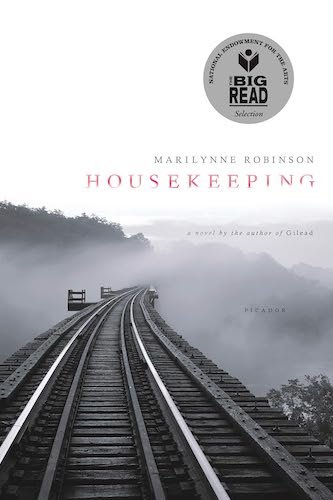Housekeeping
I recently read Marilynne Robinson’s very first novel, Housekeeping (Picador), published way back in 1980. This one, I’ve got to say, is lower-tier Robinson for me—a distinction admittedly as ridiculous as ranking the works of Michelangelo, Rembrandt, or Scorsese. (It’s all good—unless, of course, it’s great.)
In my experience, one doesn’t read Robinson’s fiction first of all for plot. These are not books to figure out; you’re not waiting on the edge of your seat for the next big reveal. Instead, these are stories to let wash over you. Or better yet, stories in which to soak.
Here in Housekeeping, we catch early glimpses of what would become Robinson’s trademark prose, a style she had pretty well perfected with the publication of Gilead 24 years later.
One such glimpse: “For why do our thoughts turn to some gesture of a hand, the fall of a sleeve, some corner of a room on a particular anonymous afternoon, even when we are asleep, and even when we are so old that our thoughts have abandoned other business? What are all these fragments for, if not to be knit up finally?”
What indeed.
